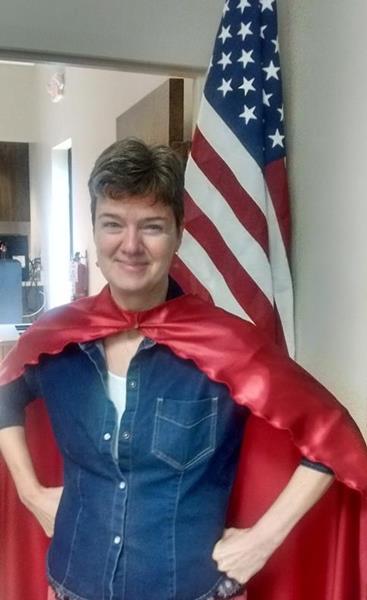Et voilà! With my compliments.
Wednesday, December 7, 2016
Compliment vs. Complement: A Complimentary Lesson
Tuesday, November 29, 2016
How to make your family name PLURAL for holiday greetings
- You’re invited to the Flatts’ annual Egg Nog Fest.
- Please come help us decorate the tree at the Hugheses’.
- Welcome to the Millses’!
HanKwanLangSyneMas, everyone! And to all a good night.
Friday, October 7, 2016
SubLog: The Story of Taylor from Minnesota
Monday, September 19, 2016
Chaise Longue - not Chase Lounge!
1) We decided that the phrase must conform to our syntax, so we decreed that “chaise” was the adjective and “longue” was the noun.
Monday, August 29, 2016
SubLog: A Tale of Two Classes
Tuesday, August 23, 2016
VocabLady: Pique, peek, and peak
Bonjour! I think I've found a niche for my VocabLady posts: English words borrowed from French (like niche, hee hee). So let's get started with a little troublemaker that I see frequently abused on the Interwebs, pique.
Piquer in French means to sting. You can hear the word clearly here in this French music video from 1988 for a song called "Mosquito," sung by child star and model, Vanessa Paradis. No comments on the quality of the video, please. It was the 80s. We didn't have smartphones or the Internet. We shushed our little brothers when our favorite song came on the radio and recorded it on a tape recorder. It was like living in caveman days.
But back to English, we use the past participle, piqué, to describe a textured fabric that has little holes and bumps -- that looks like it's been stung or poked.

We also use the verb, to pique, to mean to stimulate, to arouse an emotion, like interest or anger.
Example: The stranger's casually arrogant statement that he could beat anyone in the room at Scrabble piqued the VocabLady's interest, as well as her pride.
That would be magnifique, but English already has two other words that sound exactly the same (homophones), peek and peak.
So here are three mnemonics to help you remember this troublesome trio:
1. Peek: The word peek means to peep, to look furtively.
You can remember it because the two matching e's are like two matching eyes, as in this precious graphic from http://peek.usertesting.com/ (even cuter animation on their site).

2. Peak means top or height, like a mountain summit, when it's a noun, and to reach the fullest height, as a verb.
Example: VocabLady's Scrabble game peaked when she spelled "pique" with the Q on the triple-letter square.
You can remember this because the letter A in peak has a peak at the top.
The Oatmeal has done a fantastic post on sneak peek vs. sneak peak.
3. Pique means sting, poke at, or otherwise arouse emotion.
You can remember it because the Q's tail looks like a stinger.
Can you remember the difference? If you can, with no peeking, you are at the peak of your homophone game, and you will pique others' envy by going forth and using these three words correctly!
***
A little more history, in case you are interested:
peek, late 14th century, origin unknown (Online Etymology Dictionary)
peak, mid 16th century, perhaps from picked, meaning pointed (Google); or, a variant of pike, a sharp point (Online Etymology Dictionary), both of which ultimately go back to French pique
pique, also mid 16th century, borrowed French word
Friday, August 19, 2016
SubLog and VocabLady!
Hi! As you may know, I've created a separate blog for my jaquitos, named, appropriately enough, Jaquito.com. So I'm going to use this blog for all my other methodical madness.
My husband and I are planning to move to Denver as soon as one of us gets a job, so I didn't sign a teaching contract this year. Instead, I'm going to be a Substitute Teacher! I'm going to use this opportunity to work on my skills at connecting with students, since I won't be able to focus on the academics so much when I'm on my one-day missions to Save the Day. I'll blog about my experiences here in a sub-blog called SubLog.
I'll also be using this space to start posting about my new dream job: VocabLady. When I was an English teacher, I (and many of my colleagues) had the following problems: first, when students use rote memorization to cram vocabulary words for quizzes, without really learning why the words mean what they do, they usually don't retain much.
Second, English teachers are overworked. In addition to teaching their content areas (literature and vocabulary), they are also constantly working on the fundamental skills of writing and grammar -- because when kids write poorly, other teachers blame us. In addition, English teachers tend to have more and longer essays to grade than other teachers, and we have to grade them both for content and for mechanics (grammar, spelling, etc.).
So, how to get students to retain more vocabulary, and give English teachers a little relief? By hiring me, VocabLady! I will come into English classrooms on a regular schedule (once a week, every other week, once a quarter...) and teach kids the analytical foundations of grammar: classical roots. I was told in an AP English professional development seminar that that the second-best way for kids to learn vocabulary is through Greek and Latin roots (the best way, of course, being to read a lot). The teacher can give me a list of words, or she can have me choose them. I teach the kids how to break down the words and figure them out. I can provide assessments, and I can grade those too, if the teacher desires.
I basically take over one aspect of the English teacher's work load, and give the kids tools they can use in any subject area to learn more words.
So please follow me here to learn how a sub can save the day, and to expand your vocabulary with VocabLady!





